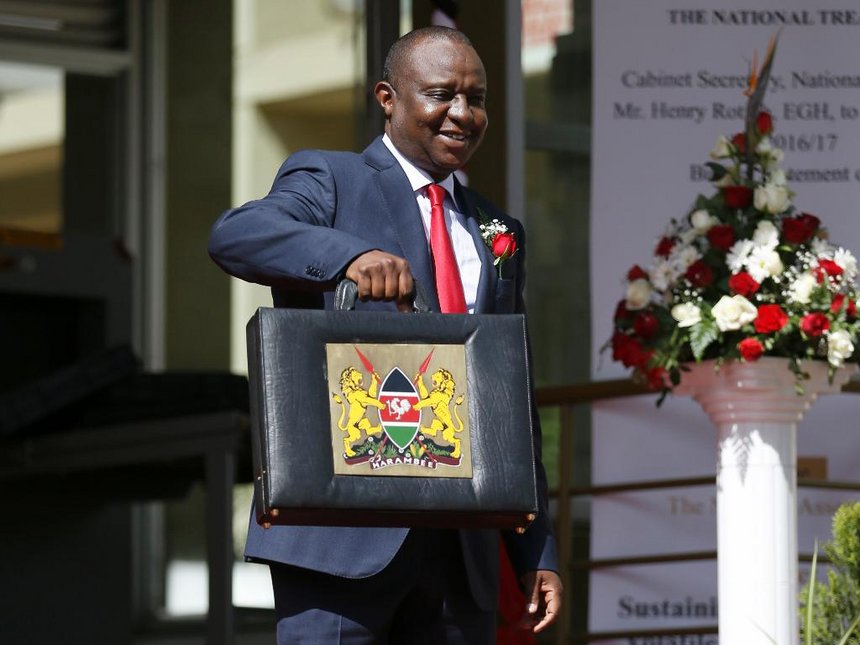EAC ministers to table national budgets today


By Fauxile Kibet
NAIROBI: Four East African countries will table their national budgets today with Kenya seeking to spend 11 times than Rwanda.
With a $30 billion budget, Kenya’s budget goes above the top Uganda, Tanzania and Rwanda all of which have a combined budget of $24.8 billion.
The tradition by East African countries to table their budgets simultaneously started 11 years ago as part of the regional integration process. However, Burundi and South Sudan have not streamlined their budget readings.
This year, the Kenyan budget stands out as the largest as the other three countries present significantly moderate spending plans.
Uganda’s estimated budget stands at Ush30.9 trillion ($8 billion); Rwanda Rfr2.4 trillion ($2.81 billion) while Tanzania’s budget is Tsh32.4 trillion or an estimated $14billion
The East African Community EAC) secretariat has urged member countries to ensure that their budgets are aligned with key sectors that will spur growth within the region.
Kenya’s Treasury Secretary Henry Rotich says that the Kenyan budget seeks to take measures under president Kenyatta’s “Big Four” agenda to boost manufacturing, enhance food security, create affordable housing and achieve universal health coverage to boost growth and create more jobs for Kenyans.
Uganda’s Finance Minister Matia Kasaija’s 30.9 trillion Ugandan Shillings (USD$8 billion) budget will seek rejuvenate the East African country’s growth which has slowed down in the past recent years.
In 2016, Uganda’s economy stood at an average 4.5%, down from an estimated 7.8% in the previous 5 years period. The slow economic growth was linked to lower prices for commodity such as Coffee, Cotton and Copper – which are the major income spurces for Uganda.
Curtailed growth was due to lower commodity prices. Uganda’s main commodity exports of coffee; cotton and copper all experienced diminished world prices.
Other contributing factors were an increased incidence of drought and the conflict in neighboring South Sudan, Uganda’s main export trade partner.
In Tanzania, Finance Minister Dr. Phillip Mpango will table the 2018/19 budget proposals with stakeholders pushing the government to come up with policies that will directly translate to improved climate for business to thrive.
Economic analysts in Tanzania believe that an attempt to raise taxes will be detrimental to the economy at a time when local industrial production has been greatly affected by various polices undertaken by President john Pombe Magufuli’s government over the past three years.
According to Mr Godfrey Simbeye, Tanzania’s Private Sector Foundation (TPSF), the Tanzanian government should reduce corporate tax rate to 15%.
“Reducing corporate taxes will encourage many unregistered businesses to formalize and boost their chances of growth. Government revenue will also increase because the newly formalized businesses will start paying taxes,” Mr Siyembe argues.
In Rwanda, the Minister for Finance and Economic Planning Dr. Uzziel Ndagijimana told parliament that the 2018/19 budget will be domestically funded 84%.
With Rwanda’s economy estimated to grow to 7.2% this year, ministry officials at the Rwandan Finance and Economic Planning reveal that they are seeking to invest more in agriculture, service and industrial growth.
“We are continuing with our national priorities and most of the increase on the budget will go towards sectors that are a priority to the growth of our GDP (Gross Domestic Product),” Rehemah Natumbei, head of the Randan National Budget told the media.
However, the secretariat also says that corruption in the respective countries would need to be tamed for state spending to have impact on the lives of the residents.